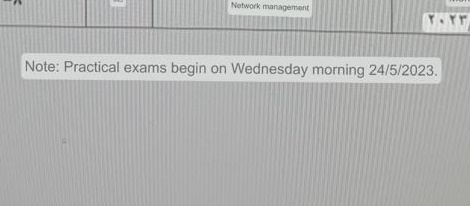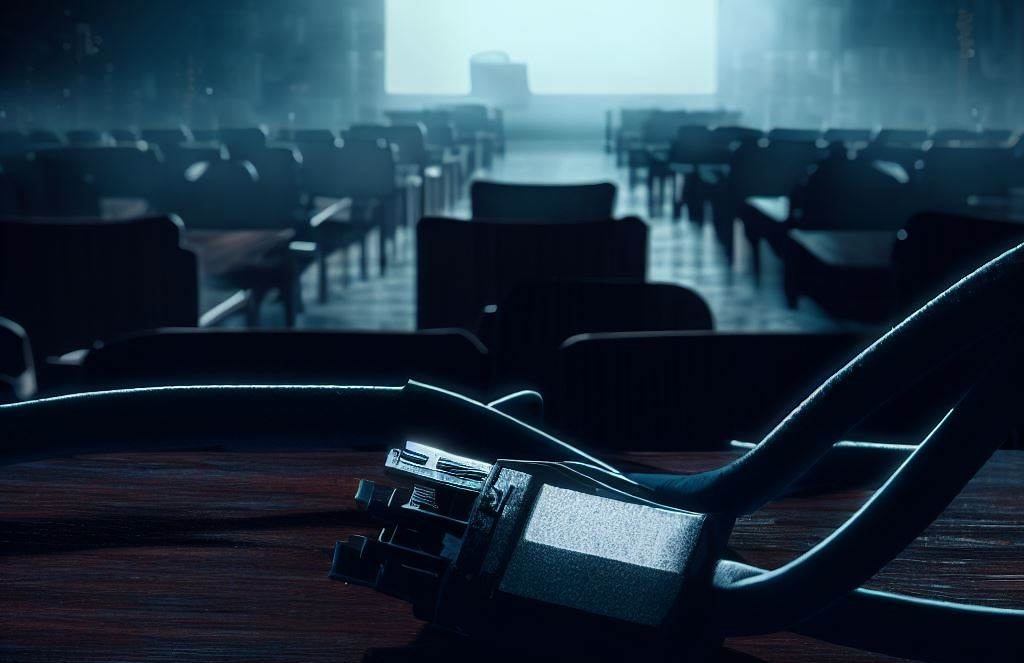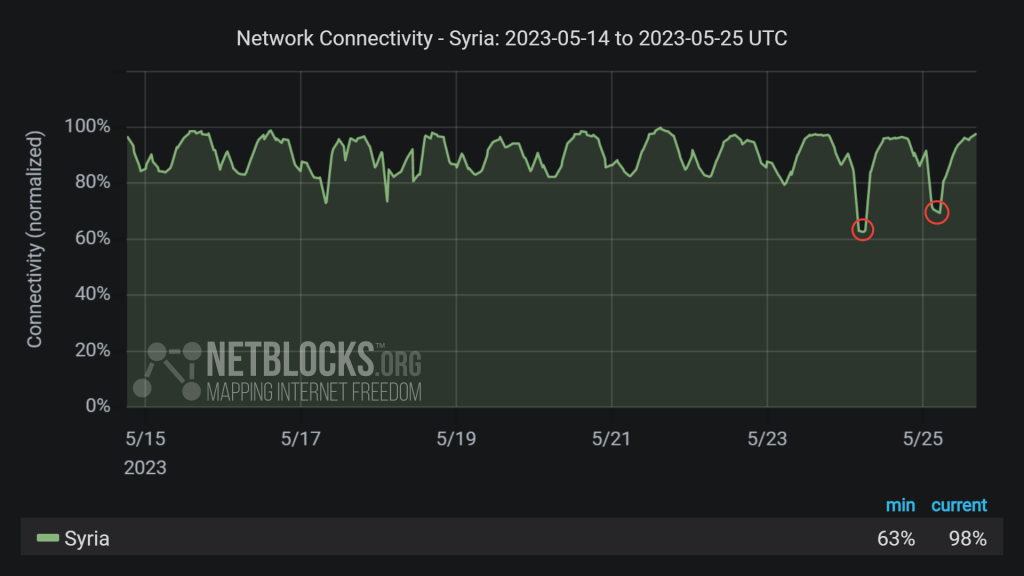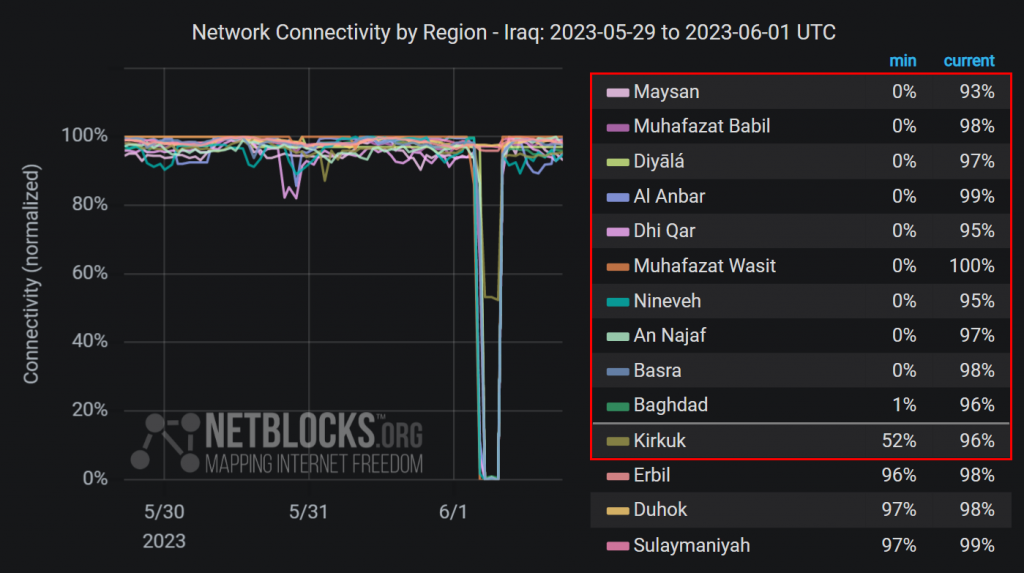This report documents nation-scale internet disruptions during the 2023 school exam calendar, along with policy observations and recommendations geared toward countering the practice of internet shutdowns that are intended to prevent school exam leaks and cheating.
Kenya – November 2023
From mid-November 2023, metrics indicate that Kenya began restricting access to the Telegram messaging platform during school exams. Timings suggest that the measure has primarily been applied in the mornings as the exams take place.
⚠️ Confirmed: Metrics indicate that #Kenya has been restricting access to Telegram during school exams since mid-November to prevent exam paper leaks which have become an endemic problem; timings show disruptions coincide with KCSE exams ?
? Report: https://t.co/chs1mjeeH3 pic.twitter.com/CLuWPpByoN
— NetBlocks (@netblocks) November 17, 2023
Recent arrests in Kenya have highlighted the growing concern around the misuse of social media platforms, particularly Telegram, for leaking examination papers. Six administrators of various Telegram channels were detained for their involvement in malpractices related to the Kenya Certificate of Secondary Education (KCSE) national exams.
The Directorate of Criminal Investigations (DCI), in a coordinated effort with the Kenya National Examinations Council (KNEC) and the Communications Authority of Kenya, conducted a multi-agency operation leading to these arrests. This crackdown followed the identification of social media platforms, primarily on Telegram, used to distribute exam materials in violation of the KNEC Act.
These Telegram channels had a significant reach, with some group memberships exceeding 18,000. The involvement of various stakeholders, including teachers, parents, and students, indicates a widespread network exploiting these platforms for illegal exam material distribution.
Investigation coordinated with thanks to Dickson Otieno.
Iraq – August 2023
On 21 August, a new nation-scale internet disruption was registered across most of Iraq, marking the onset of the second round of exams, with the first being in June. The measure once again covers most of the country including Baghdad but excluding the northern Kurdistan Region.
⚠️ Confirmed: Real-time metrics show that internet connectivity has again been cut across most of #Iraq except the north. The measure is intended to prevent leaking in the second round of school exams but disproportionately impacts other users.
? Report: https://t.co/chs1mjeeH3 pic.twitter.com/65fj2BRa9r
— NetBlocks (@netblocks) August 21, 2023
Syria – August 2023
On the morning of Thursday, 10 August 2023, Syria implemented a new internet shutdown lasting some 4 hours as a measure to secure the distribution of school exam papers as a means to limit corruption and cheating.
ℹ️ Confirmed: #Syria implemented a new internet shutdown this morning, lasting some 4 hours, as a measure to secure the distribution of school exam papers and limit cheating.
? Learn more about the countries that go offline during exam season: https://t.co/chs1mjeeH3 pic.twitter.com/vQmG7iKXgv
— NetBlocks (@netblocks) August 10, 2023
Northern Iraq – August 2023
From 6 August 2023, the autonomous Kurdistan region of northern Iraq has imposed daytime internet shutdowns between 6 a.m. and 8 a.m. during the second round of high school exams, by order of the Ministry of Transport and Communications of the Iraqi Kurdistan region. Shutdowns have so far been observed on the 6th, 7th, 8th, 9th and 10th of August.
⚠️ Confirmed: Metrics show the autonomous Kurdistan region of #Iraq has cut internet access between 6am-8am for a second day; the measure is imposed by the Ministry of Communications to "prevent the leakage of high school exam questions" ?
? Report: https://t.co/chs1mjeeH3 pic.twitter.com/lkZADHtLDj
— NetBlocks (@netblocks) August 7, 2023
Algeria – June 2023
From 11 June 2023, Algeria has implemented the nation-scale throttling of internet connectivity impacting many online services. Traffic data indicate two disruptions per day, matching morning and afternoon Baccalaureate examination times. The incidents are consistent with measures used by Algeria during exam periods in previous years.
⚠️ Confirmed: Traffic data show a cycle of daily internet disruptions in #Algeria implemented by authorities to prevent cheating in Baccalauréat exams; the measure affects many services and most internet users in the country ?#BAC2023 #Algérie
? Report: https://t.co/chs1mjeeH3 pic.twitter.com/8ML46OGXUh
— NetBlocks (@netblocks) June 12, 2023
Iraq – June 2023
On 1 June 2023, a nation-scale internet disruption has been registered in Iraq marking the first day of final exams in public and private universities and colleges per the published schedule. The measure has continued on subsequent exam days, and covers most of the country including Baghdad but excluding the northern Kurdistan Region. The shutdowns each last four hours between 4 a.m. and 8 a.m. local time, and are consistent with measures established in previous years to prevent leaks and cheating in exams.
ℹ️ Metrics show a clear distinction between the autonomous northern Kurdistan Region of #Iraq, and the remainder of the country where the internet shutdown was implemented this morning as exams took place ?
? Report: https://t.co/chs1mjeeH3 pic.twitter.com/gMHNDQoDLN
— NetBlocks (@netblocks) June 1, 2023
⚠️ Confirmed: Live metrics show internet access has been shut down across most of #Iraq except the north again this morning, the latest in a series of digital blackouts imposed by authorities in an attempt to prevent cheating in school exams ?
? Report: https://t.co/chs1mjeeH3 pic.twitter.com/yXIusrfRXo
— NetBlocks (@netblocks) June 25, 2023
Syria – May 2023 / June 2023
NetBlocks metrics confirm wide-scale disruptions to internet connectivity in Syria from the morning of 24 May 2023, as the first round of exams get under way.
The two days of network outages begin before 4 a.m. local time each morning and last some four hours, and are consistent with known measures the authorities use to prevent leaks and cheating in school exams.
⚠️ Update: Internet connectivity has been disrupted in #Syria for a second morning, matching the the government's published of scheduled practical and lab exams which officially commenced yesterday morning ??
? Report: https://t.co/chs1mjeMwB pic.twitter.com/BS5GBdKSMp
— NetBlocks (@netblocks) May 25, 2023
On 24 May 2023, Syria’s Ministry of Education commenced national practical and lab exams as per its published schedule, matching the onset of these internet disruptions. The official exam period extends into the summer and further instances are expected.

Nation-scale internet blackouts have resumed from 25 June with the onset of national exams:
⚠️ Confirmed: Real-time network data show that internet connectivity has been cut across #Syria, as authorities continue to impose far-reaching internet shutdowns to prevent cheating in school exams ?
? Report: https://t.co/chs1mjeeH3 pic.twitter.com/Qs0rzAlIVY
— NetBlocks (@netblocks) June 26, 2023
Addressing internet blackouts during exams
 Around the globe, governments periodically impose internet shutdowns during school exams under the pretext of curbing malpractices. These acts, often severe and prolonged, disrupt digital rights, impede access to information, and create a ripple effect impacting social, economic, and civic life.
Around the globe, governments periodically impose internet shutdowns during school exams under the pretext of curbing malpractices. These acts, often severe and prolonged, disrupt digital rights, impede access to information, and create a ripple effect impacting social, economic, and civic life.
Impacts
- Economic: Internet shutdowns carry an enormous economic cost, disrupting digital economies and inhibiting the growth of sectors dependent on the internet.
- Societal: Shutdowns create information blackouts, leading to reduced transparency and accountability, hampering crisis communication, and inhibiting social and civic participation.
- Human Rights: They violate the fundamental right to information, freedom of expression, and privacy, undermining democratic principles.
- Educational: Online learning resources, a crucial support for today’s digitally-oriented education, become inaccessible during shutdowns. Students miss out on the ability to revise for upcoming exams during the exam period.
Recommendations
- Promote Transparency: Advocate for governments to be transparent about their internet management policies, highlighting the adverse effects of shutdowns on society.
- Enforce Digital Rights: Lobby for the recognition of internet access as a fundamental human right, advocating for legal frameworks that protect this right.
- Engage Stakeholders: Collaborate with educational institutions, civil society organizations, and international bodies to raise awareness about the harmful impact of internet shutdowns.
- Support Technological Advancement: Develop and promote technology solutions to counter internet shutdowns, ensuring continuous access to information during these periods.
- Advocate Independent Internet Measurement: Push for the establishment of independent, objective, and comprehensive internet measurement. Monitoring the status of internet connectivity should not be under governmental control or influence, ensuring that reporting is unbiased and reflective of actual internet accessibility. By using technology developed by organizations like NetBlocks, this measurement can provide an unaltered picture of the state of internet shutdowns, contributing to the credibility of reports and strengthening advocacy efforts.
NetBlocks recommends against the use of network disruptions and social media restrictions to counter exam cheating, given their disproportionate impact to internet users including to their freedom of expression and digital prosperity.
Methodology
NetBlocks diffscans, which map the IP address space of a country in real time, show internet connectivity levels and corresponding outages. Purposeful internet outages may have a distinct network pattern used by NetBlocks to determine and attribute the root cause of an outage, a process known as attribution which follows detection and classification stages.
This report uses third-party internet measurement data from the "Google Transparency" data source. Learn more about the NetBlocks TPD program and integrations.
NetBlocks is an internet monitor working at the intersection of digital rights, cyber-security and internet governance. Independent and non-partisan, NetBlocks strives to deliver a fair and inclusive digital future for all.
[ press | contact ] Graphics and visualizations are provided for fair use in unaltered form reflecting the meaning and intent in which they were published, with clear credit and source attribution to NetBlocks. Intellectual property rights are protected including but not limited to key findings, facts and figures, trademarks, copyrights, and original reporting, are held by NetBlocks. Citation and source attribution are required at the point of use.
Reporting Sponsor: Surfshark


